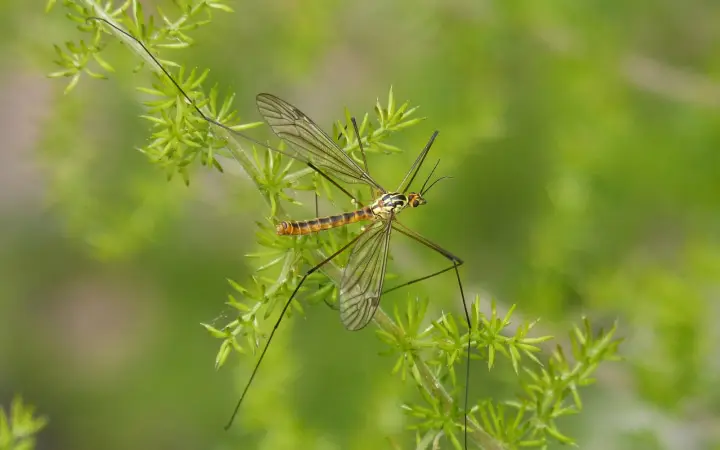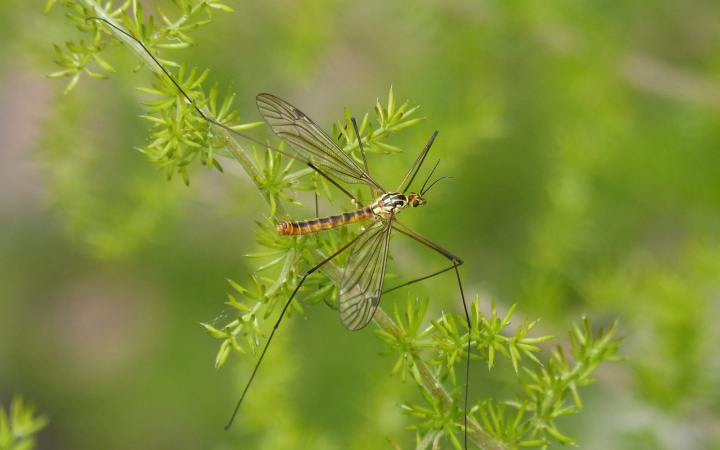
How many times has a lovely evening spent outdoors been ruined by mosquitoes? If you’re tired of battling these pesky bugs while trying to enjoy your garden or patio, you’ve probably heard that certain plants can help keep them at bay. But do these mosquito-repelling plants really work? In this guide, we’ll explore the best plants to ward off mosquitoes and how you can use them to make your own natural DIY repellents.
Do Mosquito Repellent Plants Actually Work?

Yes, mosquito repellent plants can help—but they’re not a magic solution. While these plants do produce scents that mosquitoes find unpleasant, simply planting them in your garden won’t automatically make your space mosquito-free. The scent alone isn’t powerful enough to keep the mosquitoes away completely. To maximize the benefits, you’ll need to extract the repelling compounds from these plants and use them in sprays or lotions.
Good to know: Many commercial bug sprays already use these natural compounds, but they may also include other chemicals you might want to avoid. You can make your own natural repellents with the plants you grow!
Are These Plants Safe for Pets?
If you have pets, especially dogs, it’s important to be cautious. Some mosquito repellent plants, like citronella, marigolds, and geraniums, can be toxic to pets. If you have citronella in your garden, make sure it’s in an area your pet can’t access, and avoid using citronella-based products on your furry friends.
For a safer option, you can use citrus juice (like lemon) on your dog’s fur to keep mosquitoes away, or try essential oils like geranium or soybean oil, which are safe for pets when used externally.
Top Mosquito Repellent Plants for Your Garden and Home
Here’s a list of some of the most effective mosquito repellent plants:
1. Java Citronella Grass (Ceylon Citronella)
Look for Ceylon or Java citronella grass—this type is the real deal. Many plants marketed as “mosquito plants” are actually geraniums with only a small amount of citronella content. Java citronella grass, on the other hand, contains up to 21% citronellal, a compound that repels mosquitoes.
2. Lemon Balm

Lemon balm, a member of the mint family, is powerful against mosquitoes and easy to grow. It contains 38% citronellal, making it an effective choice for repelling bugs.
3. Lavender
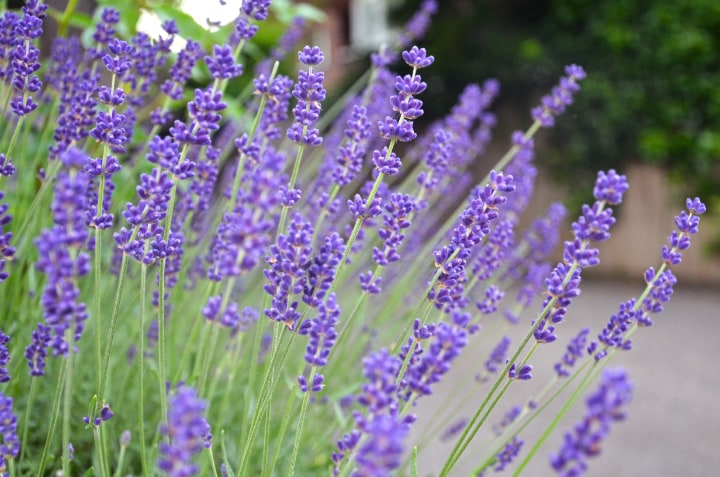
Lavender’s pleasant fragrance is adored by humans but repulsive to mosquitoes and other insects. It’s a beautiful addition to any garden and works well indoors too.
4. Catnip
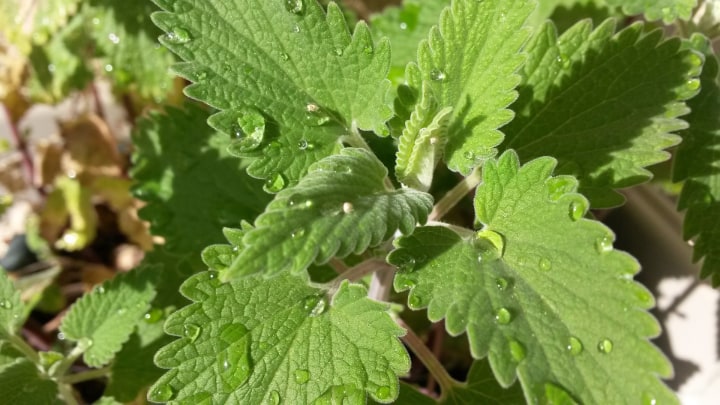
Catnip doesn’t just drive cats wild—it’s also 10 times more effective at repelling mosquitoes than DEET, the active ingredient in many commercial sprays. If you want an easy-to-grow, powerful repellent, catnip is a great choice.
5. Marigolds
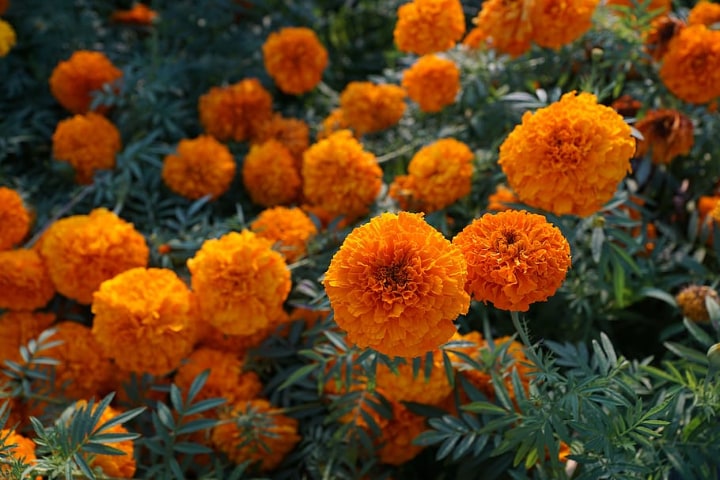
Marigolds are not only lovely to look at but also fantastic for repelling mosquitoes. They contain a compound called pyrethrum, which is found in many insecticides.
Mosquito Repellent Plants for Indoors
If you’re looking to keep your home mosquito-free, here are a few plants you can grow indoors:
1. Lavender
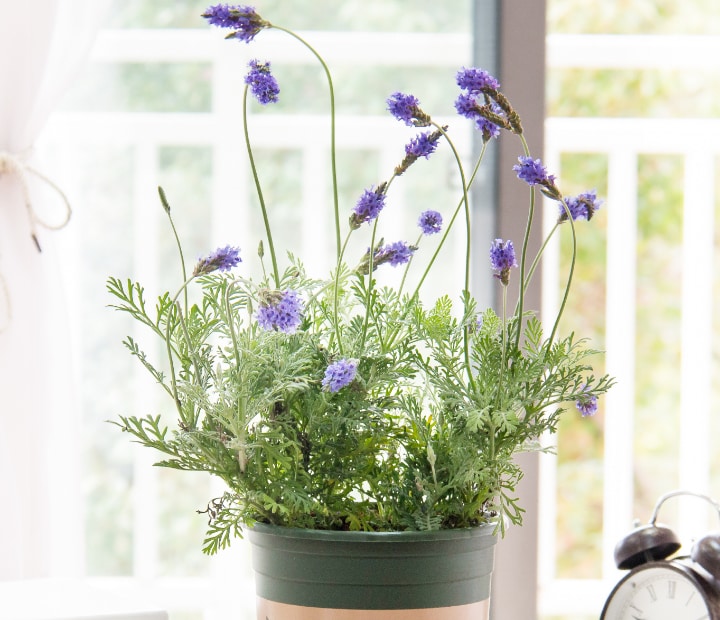
Lavender works well indoors too. Place it on a windowsill with plenty of sunlight and air circulation. The stronger scent of English lavender makes it a better mosquito repellent than the French variety.
2. Basil
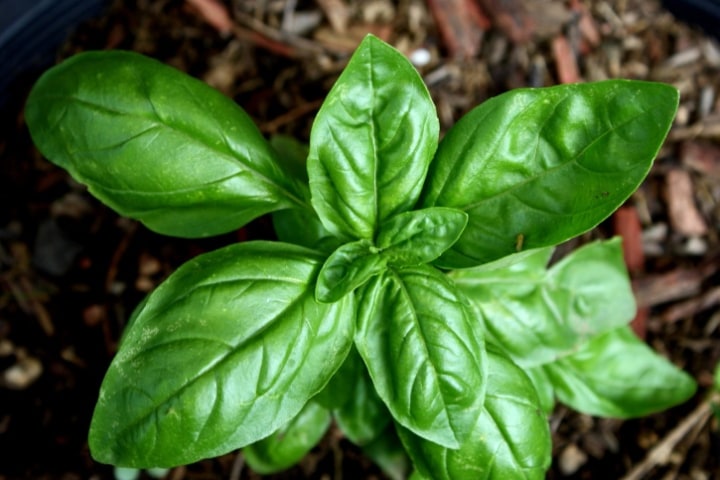
Basil not only smells great, but its essential oil also repels mosquito larvae. It thrives in sunny spots, so place it by a window with good light.
3. Lemon Balm
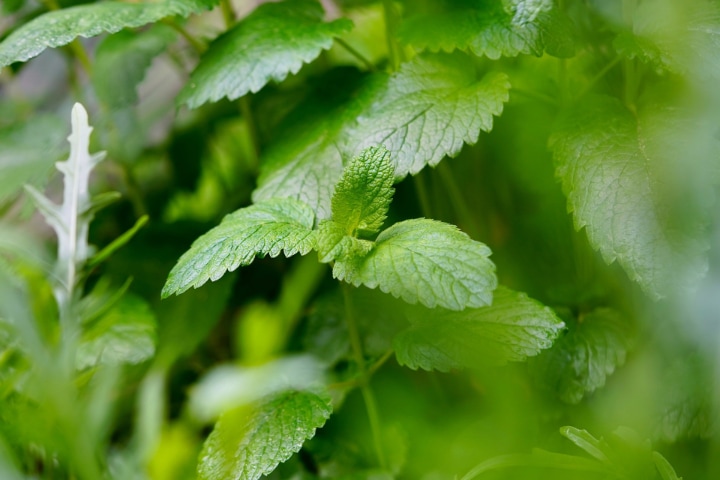
Lemon balm is another great indoor plant that can help keep mosquitoes away. Keep it in a pot on your windowsill to ward off the bugs without taking up much space.
4. Rosemary
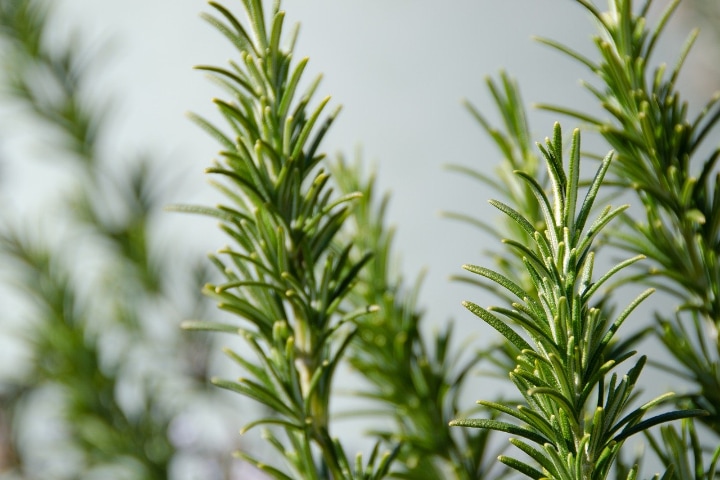
Rosemary isn’t just for cooking—it’s also effective at repelling mosquitoes. It thrives in sunny, dry conditions, so it’s perfect for a small herb garden on a balcony or windowsill.
5. Mint
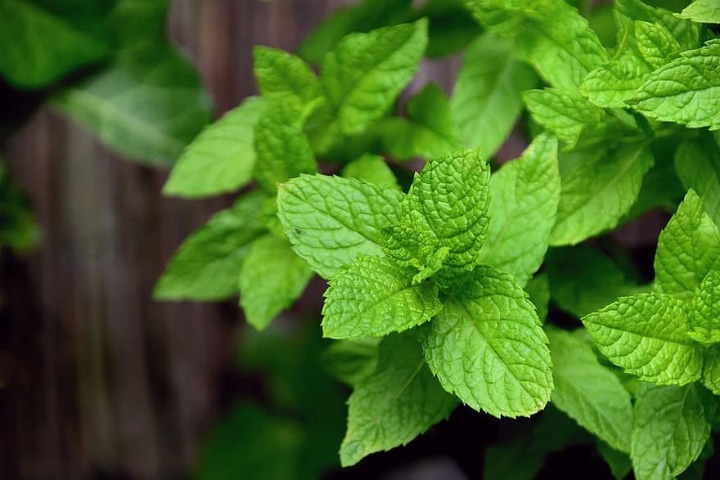
Mint has a refreshing smell that we love, but mosquitoes hate it. It’s a hardy plant that needs full sun to partial shade to thrive.
Outdoor Mosquito Repellent Plants
If you want to create a mosquito-free zone in your garden, consider planting these:
1. Citronella Grass
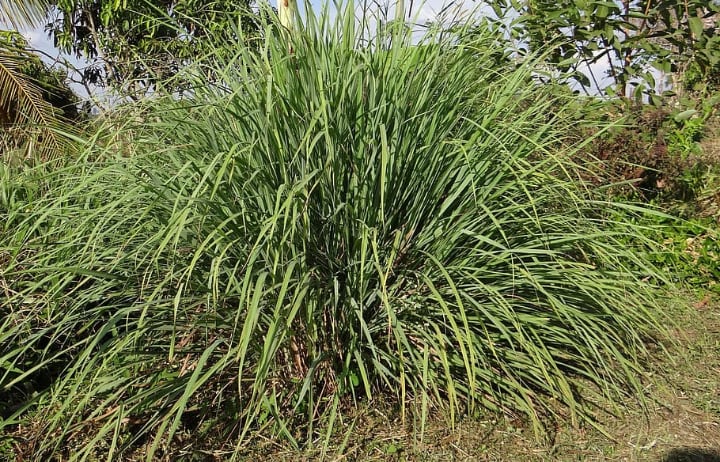
True citronella grass (Ceylon or Java) is a must-have for any garden prone to mosquito problems. It grows in clumps and can be used as a perennial in warm climates or an annual in colder areas. It grows up to 6 feet tall and is low maintenance.
2. Pennyroyal
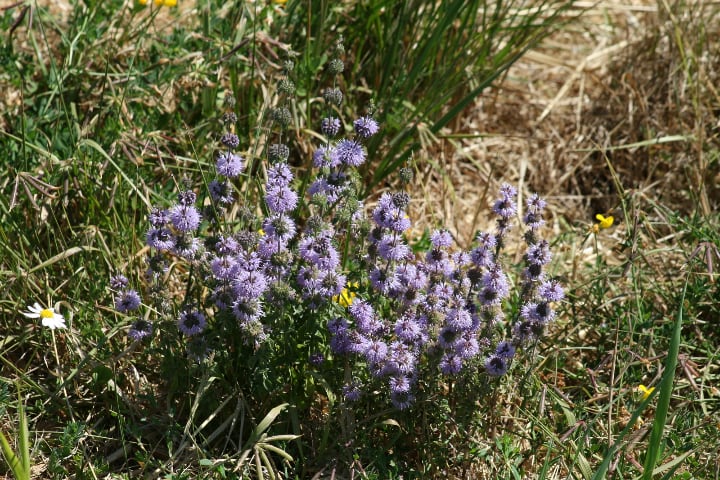
Pennyroyal is a fragrant plant that works as a great mosquito repellent. It also attracts butterflies, making it an excellent addition to your flower beds.
3. Allium
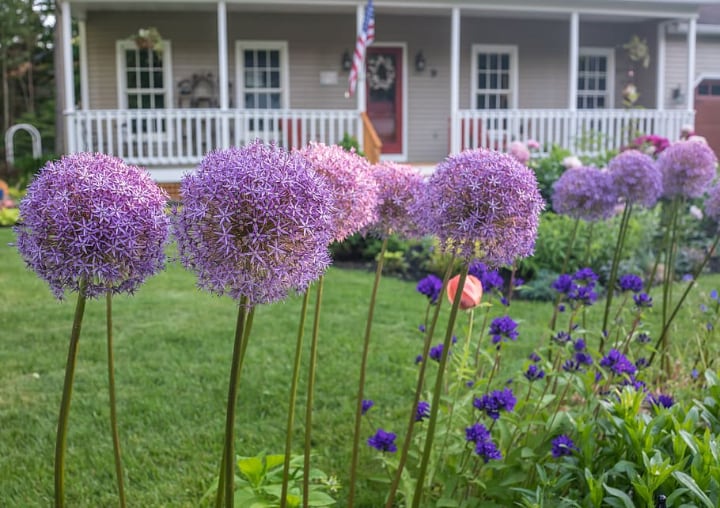
Garlic and onions, part of the Allium family, are natural mosquito repellents. They won’t smell like garlic in your garden, but mosquitoes dislike the scent. These plants can add a lovely touch to any garden, especially the ornamental varieties with colorful flowers.
4. Pitcher Plant
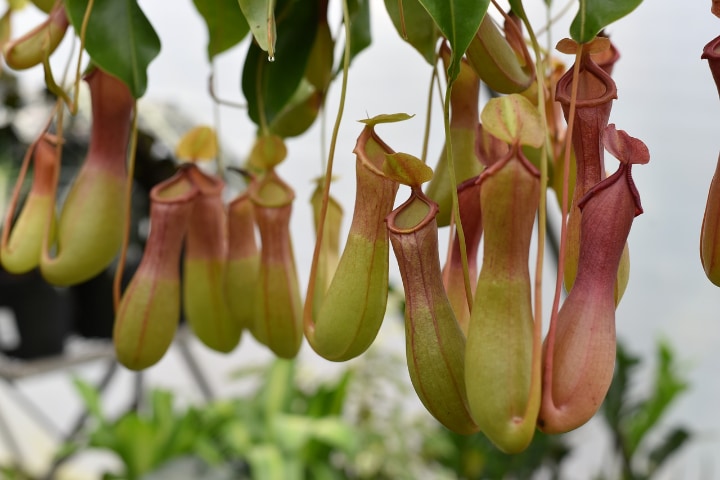
This carnivorous plant doesn’t repel mosquitoes—it attracts and eats them! Place pitcher plants in pots around your patio to catch the occasional mosquito.
5. Floss Flower
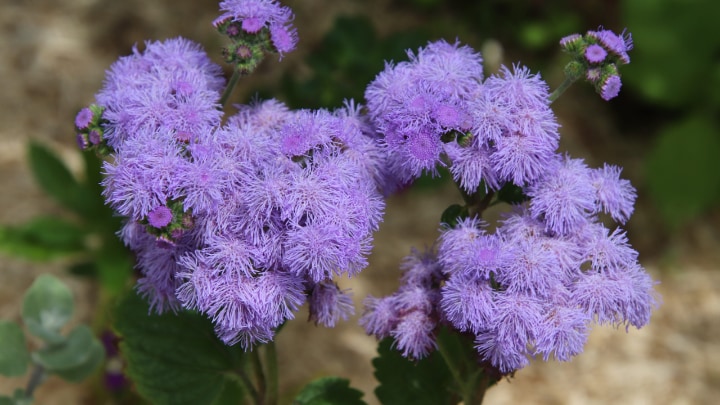
Floss flowers have a natural mosquito repelling compound called coumarin. They’re a beautiful purple addition to your garden, but be cautious if you have pets or small children, as this plant is toxic when ingested.
DIY Mosquito Repellent Remedies
If you want to take mosquito control to the next level, consider making your own natural repellent using plants you have in your garden.
1. Lemon Grass and Rosemary Essential Oil Lotion

- 10 drops of rosemary essential oil
- 10 drops of lemongrass essential oil
- 2 oz of carrier oil (jojoba or coconut)
Mix all the ingredients and apply it to exposed skin twice a day.
FAQs:
- Do mosquito-repelling plants really work?
Yes, mosquito-repelling plants do work to some extent by producing scents that mosquitoes find unpleasant. However, they’re not a foolproof solution. To get the best results, consider extracting the compounds from these plants for use in homemade repellents. - Are mosquito-repellent plants safe for pets?
Some mosquito-repelling plants, like citronella and marigolds, can be toxic to pets. If you have pets, especially dogs, ensure the plants are placed in areas they cannot access. Always check the safety of any plants you intend to grow with your pets in mind. - What are the best mosquito-repellent plants to grow indoors?
The best indoor mosquito-repellent plants include lavender, basil, lemon balm, rosemary, and mint. These plants are easy to grow indoors and can help keep mosquitoes at bay, especially when placed near windows or well-lit areas. - Can I grow citronella grass in cold climates?
Citronella grass thrives in warm climates, but if you live in a colder area, you can grow it as an annual or bring it indoors during the winter months. It can also be planted in pots to make it easier to move. - What plants can I use to make DIY mosquito repellent?
You can make your own mosquito repellent using essential oils from plants like lemongrass and rosemary. Mix them with a carrier oil like jojoba or coconut oil and apply to exposed skin for natural protection. - How can I create a mosquito-free zone in my garden?
Plant mosquito-repellent plants such as citronella grass, pennyroyal, alliums, and marigolds in your garden. Additionally, you can place pitcher plants around your patio to naturally trap mosquitoes. - Do any plants attract mosquitoes?
While most plants can repel mosquitoes, certain plants, such as the pitcher plant, actually attract and consume mosquitoes. These are great to have around if you want to naturally reduce mosquito populations. - Is it necessary to use mosquito repellent sprays in addition to planting repellent plants?
Planting mosquito-repelling plants can certainly help, but for more effective results, you may need to use sprays or lotions made from the essential oils of these plants. Combining both methods will enhance protection. - How often should I reapply natural mosquito repellent?
For DIY mosquito repellent, it’s best to reapply every 4-6 hours, especially if you’re spending extended time outdoors. Reapply more frequently if you’re sweating or swimming. - Can I plant all mosquito-repelling plants in one area of my garden?
Yes, you can plant mosquito-repelling plants together in a designated area of your garden. However, keep in mind that some plants may have different sunlight, soil, and watering needs. Ensure you group plants with similar requirements for optimal growth.
By incorporating mosquito-repelling plants into your garden, you can enjoy the outdoors without the annoyance of pests. Whether you’re planting for beauty or practicality, these natural methods offer a sustainable solution for a mosquito-free environment. Happy gardening!
Conclusion:
Mosquitoes can definitely be a nuisance, but with the right plants in your garden or home, you can significantly reduce their presence and make your outdoor spaces more enjoyable. While mosquito-repelling plants like citronella, lavender, catnip, and marigolds do provide a natural barrier, remember that their scent alone won’t keep mosquitoes away entirely. To maximize their effectiveness, consider using extracts or essential oils from these plants in homemade sprays or lotions. Also, be mindful of pet safety when using certain plants in your garden. By combining natural repellents with strategic planting, you can create a more comfortable and mosquito-free environment both indoors and outdoors.

